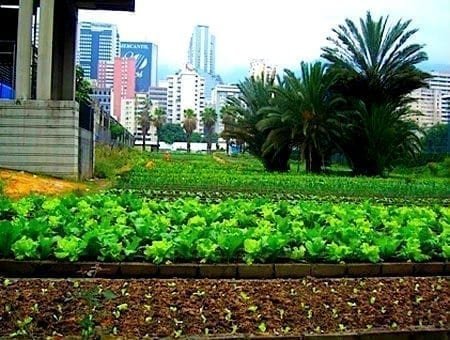Classic clay seed ball
Japanese biologist and farmer, Masanobu Fukuoka, is credited with the design of the classic and most widely used seed bomb. Mix clay soil (or potter’s powder), compost and seeds in a ratio of 5:1:1, using water to bind. It’s an easy and cheap method that requires only natural ingredients, but the clay can bake solid and prevent – or at least slow down – germination.
Kabloom ‘SeedBom’
Darren, a guerrilla gardener from Scotland, designed and creates these seed bombs from recycled paper, egg boxes, compost and seeds, as well as the odd teabag. You can buy them ready-made online, along with detailed instructions on how to use them, but they need to be handled carefully and require quite a lot of rain.
Explosive eggs
Guerrilla gardeners Ella 1305 and Aime 1306 invented this method in 2007. The white and yolk are sucked out of a raw egg through a tiny hole in the shell, and then seeds and a bit of peat are dropped in. They’re fiddly to make but are easy to carry in an egg box and only natural ingredients are used.
Seed balloon
The seed balloon was devised in 2009 by guerrilla gardener Vanessa 6111. A biodegradable rubber balloon is filled with helium and seeds before being released into the unknown. These balloons can travel far and wide, but lack any kind of accuracy. The rubber will also take a long time to break down, which could affect the seed germination.
Seed pill
Another of Vanessa 6111’s creations, the seed pill holds a mixture of seeds and compost inside an empty biodegradable pill capsule. Designed to fracture on impact, the seed pill is easy to carry and throw, though it’s fiddly to make.
TRY FOR YOURSELF
You don’t need a degree in landscape design to get cracking – in fact you don’t need much at all.
Find your spot
Keep your eyes peeled for a patch of unloved land; you might be surprised by the number of local areas that are ripe for the guerrilla treatment.
Keep your friends close…
Talk to your local council beforehand; when it comes to criminal damage there’s no legal distinction between felling or planting a tree on land that’s not ‘yours’. Bonkers, we know.
Keep it simple
Go for something hardy that can look after itself. Lavender and thyme look and smell great without needing much attention.
Share your plans
You can do more as a group; www.guerrillagardening.org has a community page for planning activities and sharing tips and advice.
Under cover of… Dusk
Local authorities will likely turn a blind eye, but going out in the evening will reduce the chance of unnecessary confrontations.
 Play Video about This Rock Might Just Save The World
Play Video about This Rock Might Just Save The World Play Video about Play 2 hours of rock
Play Video about Play 2 hours of rock Play Video about Play 2 hours of brook
Play Video about Play 2 hours of brook Play Video about Play 2 hours of sheep
Play Video about Play 2 hours of sheep











































